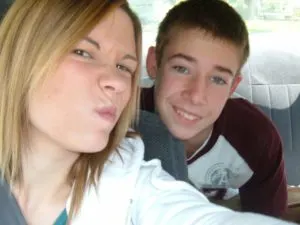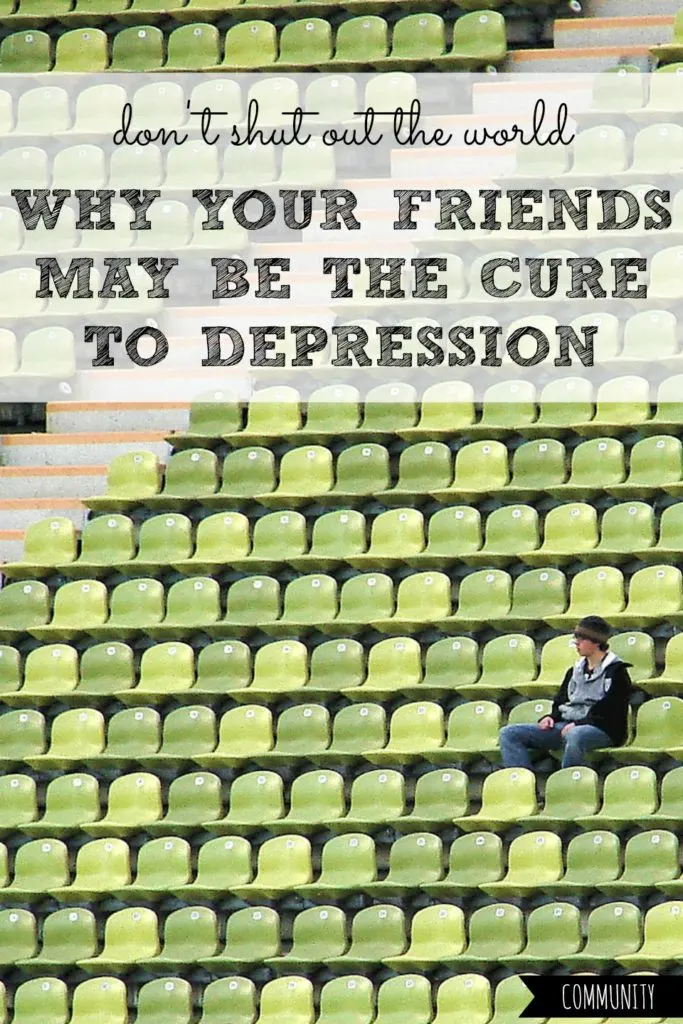When I was 23 years old, my first husband blindsided me with a divorce. I had noticed that he wasn’t as loving toward me. I even saw him pulling away for more space, and more time with his friends. But I had no idea that divorce was even in his vocabulary.
I had already been struggling with depression for several months and quickly learned that divorce does not help depression. Newsflash, I know.
Isolation might be your first instinct but it does not help depression.
My first instinct was to isolate myself from the entire world. Depression had already geared me toward it and divorce seemed to clinch the deal.
I felt embarrassed. I had honestly believed we would stay together forever, that God had made us soulmates. Now I carried the stigma of divorce before most of my friends had even married once.
I didn’t want to talk about it with my family, especially since they objected to him in the first place. I didn’t want their pity or encouragement. It just made me feel worse.
My friends provided incredible support but I felt like I couldn’t talk through it with them. I mean, I could tell them about it. But having never experienced marriage nor divorce themselves, they couldn’t fully relate.
Going to work felt unbearable. I would see the pity in my coworkers’ eyes, and imagined walking into hushed conversations as they told one another what had happened. I was afraid I would burst into tears and not be able to reel it all back in.
The grocery store, our go-to fast food joints, anywhere that I might risk running into someone I knew, I avoided.
My husband had fled to his brother’s house for a few days while I figured out my next move. It was just me and my dog, in the new apartment we had just moved into.
The apartment where I had just completed all of the painting, unpacking, and reorganizing. The apartment where I had imagined our future together.
And what I wanted to do was stay alone forever, from everyone. I wanted to cry for hours on end and I didn’t want anyone there to comfort me except for my dog. I didn’t believe anyone was capable of truly comforting me. And I figured that their awkward attempts to comfort would only make me feel worse.
Family and friends can help depression.
What I did instead was move back in with my parents for a few months.
In some ways, it deepened my depression. I had been living on my own in a big city, a city where I felt like a part of a scene, a culture. Now I was living with my parents in a quiet city one-eighth the size. It felt as if I had climbed a mountain of independence only for my ex to sucker-punch me back to the very bottom again, back in my parents’ care.
I didn’t know it at the time but it was the smartest move I would make. Sure, thin walls don’t afford much privacy for crying most nights. And of course, my mother was overly helpful and suggestive of my next steps, in that annoying way that most mothers are.
Yes, I felt stupid as my extended family members each visited in the following weeks to see me and to reassure me that my ex was the problem, that I was better off without him. Because that’s what good families do.
They provide love and support.
But surrounding myself with people, even when I would have preferred isolation, helped me first to understand just how much my family and friends loved me. Because my parents, siblings, grandparents, aunts, uncles, and cousins, despite fighting their own battles, carved out time to spend with me.
They were present, even when I didn’t have much to say, or struggled to smile at their jokes. Their presence provided me with a soft and supportive place to land as I fell from my mountain.
They help to shift your focus.
Secondly, surrounding myself with people helped to shift my focus. Rather than wallowing alone in my apartment, I could see the situations that others were facing. I could see needs other than my own.
I was able to find the smallest tastes of happiness again – hearing my grandpa’s calm reassurance, introducing my new dog to my dog-loving dad, watching my 16-year-old brother sing Fergie’s line in his best high voice, “Imma be shakin’ my hips, you gon’ be lickin’ your lips.”
Those moments didn’t start a fire but the little sparks in the darkness gave me hope for the future.

Me and my brother, aka Fergie.
Science shows that friends help depression.
And I found that my experience that friends help depression, is actually backed by science!
Scientists from the Universities of Manchester and Warwick studied 2000 people to conclude that happiness is, in fact, contagious. While medication only helps one-third of those battling depression, strong social support cured depression for 50 percent of participants.
The study found that if you have a happy group of friends, your chances of developing depression are cut in half and your chances of recovering from depression double, over a 6 to 12-month period.
Bonus! The same study found that depression isn’t “contagious.” So you don’t have to worry about dragging your happy friends into the same darkness you’re battling.

Although depression tends to make us want to shut out the entire world, surrounding yourself with people can help depression first by making you feel more loved and supported. Second, it shifts your focus away from your own problems. And finally, it halves your chances of developing depression, doubles your chances of recovering from it, and cured depression for 50 percent of study participants.
You don’t have to be the life of the party. You don’t even have to talk about what you’re going through. Just get out there!
P.S. Looking for more info on depression? Then check out the rest of our series:
You Could Be Living With Depression and Not Even Know It
Inside a Depressed Person’s Mind | The Best Description You’ll Ever Read
What Does God Say About Depression? 8 Biblical Truths Crucial to Recovery
How to Help Someone With Depression – 5 Meaningful Ways to Support Them
Prefer to receive our 5-day series on depression via email? We’ll send you one post a day! Grab it here!
*DebPreston.com is not intended to be a substitute for professional advice, diagnosis, medical treatment, or therapy. Always seek the advice of your physician or qualified mental health provider with any questions you may have regarding any mental health symptom or medical condition. Never disregard professional psychological or medical advice nor delay in seeking professional advice or treatment because of something you have read on DebPreston.com.
Disclosure: While all opinions are our own, we are a participant in the Amazon Services LLC Associates Program and other affiliate advertising programs, designed to provide a means for us to earn fees by linking to Amazon.com and affiliated sites, at no additional cost to you.



